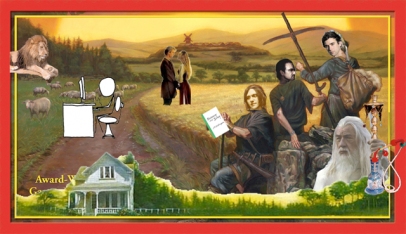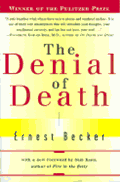Today is the Lord’s Day (unless you are a Seventh Day Adventist, Jewish or Muslim), so I thought I would postpone my “Christian and Conservative Idealization of the 1950s in View of ‘Madmen'” post and write about why church is so difficult, and why committing to a church is so difficult.
As you might be aware, I am a woman; as you might also be aware, I trend left, politically speaking (OK, “trend left” is a bit of an understatement). As well, I am an evangelical, and tend to be orthodox in my theology, meaning I still think it’s important to adhere to the Creeds–Nicene and Apostles’, mainly. You would not think, at first, that these three pieces of information–gender, politics, orthodoxy–would necessarily make the question of church difficult. And it doesn’t always: plenty of women attend churches that are “complementarian” or belong to denominations that do not ordain women–in fact, many women are very vocal defenders of these policies, especially those associated with the SBC, the conservative wing of the Catholic Church, the PCA, Mars Hill or CBMW; plenty of liberals keep their mouths shut and attend conservative churches, or don’t see politics as a priority outside of the voting booth; some evangelicals are perfectly fine attending less-than-orthodox churches because they value belonging to a neighborhood perish or prioritize high church liturgy or the centrality of the weekly Eucharist over teaching or belief statements.
For me, though, as well as for some kindred spirits in my life, these factors significantly complicate decisions about where to attend church. Here is how it usually goes: I look for a church in which Jesus Christ is central, and in which the gospel is preached. In the United States and Canada, unfortunately, this weeds out a lot of churches. Then I move to secondary considerations, regarding worship: theologically meaningful worship (hymns are a plus!); in-depth, intelligent, theologically sound preaching; regular (hopefully weekly) Eucharist/communion; reverence for and centrality of the Word of God; some use of liturgy or orders of worship; and efforts to include beauty and sensory experiences into worship.
Worship is foundational, to me, and I believe that it should not be about what “feels good” to us but what is honoring to God; at the same time, we have to be able to enter into it in an authentic manner. I think that several things help me/us to do this: liturgy, because within set forms and prayers we are released from our perpetual self-consciousness; conscious openness to the Holy Spirit; engaging different parts of our selves–I am drawn into worship through words, while others might be drawn in through incense, icons, or music; the Eucharist, because it was instituted by Christ, has been present since the Church’s inception, and unites us with Communion of Saints, past and present; and preaching rooted in Scripture.
At this point I often encounter my first problem: most evangelical, “theologically orthodox” churches consist of a whitewashed church or warehouse, a few worship songs (with loud guitars and drums), extemporaneous prayer (“Lord, I just want…”) and a sermon by a charismatic preacher in jeans (with a powerpoint!). There is nothing wrong with this, in terms of the gospel still being preached, and people praising God, but I feel a longing for something deeper and more substantive, that is connected with the rich history of the Church universal. I often feel that this leaves me with two options (I am aware of non-denominational and emergent churches trying to create church from the best of all traditions, but I think this “picking and choosing” can be a bit dangerous), as I do believe in the necessity of denominational structures: Anglican or Presbyterian. This, subsequently, gives rise to new problems, specifically the conservative vs. mainline issue.
Right now, this issue is thought of as a code for “the gay thing”, which is tragic, because I think that this caricatures the very real and very complex questions at hand, and focuses the entire conversation around the fate of a particular group. Many of the mainline churches have, for various reasons, adopted a kind of gospel of niceness and inclusivity. For the gospel to be nice and inclusive, though, this involves a lot of watering-down of belief, and for me, this has always “begged the question” (wrong use of phrase, I know): what’s the point? If Jesus didn’t really die for us and was not raised as the first fruit of what is to come, we are basically finding artificial ways to give meaning to our lives, which to me is a waste of time: why not be honest and join a humanist community center or something? There are ways to create meaning in life without pretending it is based upon something that you have watered down so much that there is nothing to actually believe in. My point is, in aiming to become a socially acceptable, influential civil institution, the mainline churches mostly focus on doing good work in society (not a bad thing at all) while being vaguely spiritual and trying not to offend anyone by claiming exclusivity of doctrine or belief system (or anything else).
There are exceptions, of course–West Side Presbyterian, Christ Church of Hamilton-Wenham, Church of the Advent, University Presbyterian, to name a few, and these churches make a strong argument for continuing as witnesses in their denominations. This is a good thing, but these churches are tough to find.
So, because I get frustrated with not being able to at least start on the same page with the basics, i.e. who Jesus was, I move to the more theologically conservative forms of these two denominations, and here we run into the other two problems. Read the rest of this entry »
Filed under: Uncategorized

 matter). It may be a little muddled and circuitous, but bear with me. As some of you may be aware, George and I have recently gotten into the series: “Mad Men”. If you are aware of this, it is probably because I tend to share at great length about cable shows I am
matter). It may be a little muddled and circuitous, but bear with me. As some of you may be aware, George and I have recently gotten into the series: “Mad Men”. If you are aware of this, it is probably because I tend to share at great length about cable shows I am 







